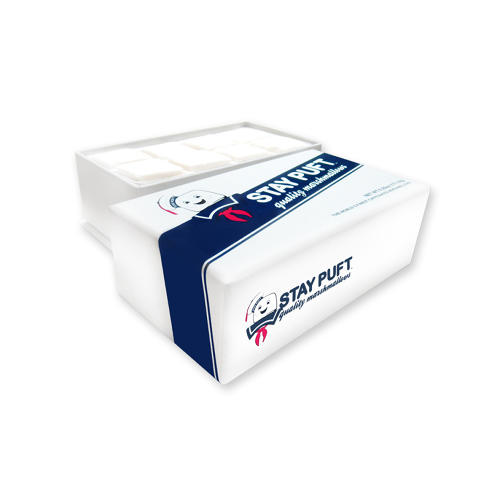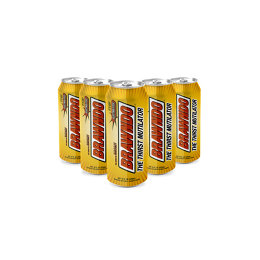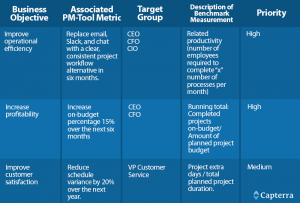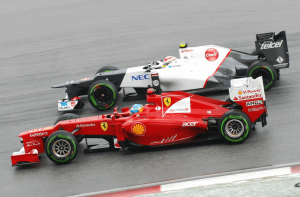 How Omni Consumer Products used True Blood and Ghostbusters to create a thriving business selling real versions of fake stuff.
How Omni Consumer Products used True Blood and Ghostbusters to create a thriving business selling real versions of fake stuff.
Pete Hottelet remembers the day he walked into the headquarters of Valve–makers of the immensely popular Half-Life video game–while proudly wielding a crowbar. In his mind, it was a can’t-miss proposition: The game’s protagonist, Gordon Freeman, used the tool to smash skulls. Gamers regarded it as iconic. As a potential licensee, Hottelet figured a color-accurate replica would be a nice addition to man caves and adolescent bedrooms around the world.
Valve’s creative team hefted the crowbar, impressed, but no deal was struck. The problem, they explained, was one of liability. “They didn’t want people murdering each other with it,” Hottelet says. “They did think it was great, though.”

As the sole proprietor of Omni Consumer Products, Hottelet is constantly scanning the pop culture zeitgeist for imaginary items that can be “defictionalized,” as he calls it, and offered to consumers as a tangible product. While prototypes like the crowbar or an audaciously morbid trash bag and knife set inspired by Showtime’s Dexter might invite class-action mayhem and are unlikely to see the light of day, Hottelet has nailed it in other venues. His carbonated beverage based on HBO’s recently wrapped True Blood was a huge hit; Sex Panther cologne, the fragrance favored by Paul Rudd’s news doofus Brian Fontana in the Anchorman films, is the kind of gift that might prompt an eye-roll if it weren’t so well-made. (The box actually growls when opened.)
“You’re not actually selling cologne,” Hottelet says of the reverse product placement. “You’re selling the connection people have with the film.” The trick for Hottelet is to try and anticipate which products will resonate with consumers, feeding nostalgia while avoiding tacky tie-ins. If Hottelet has his way, at least a couple of your friends should have a bag of Stay-Puft marshmallows or Fight Club bar soap on display.
At 35, Hottelet has a healthy affection for the entertainment culture that’s shaped the last few decades. Until recently, he owned a DeLorean, the same model that shuttled Michael J. Fox back and forth in time; this past spring, he made viral waves for crafting an oven mitt in the shape and style of a Nintendo Power Glove; and when he got wind of a movement to try and get a massive Robocop statue erected in Detroit, he contributed several thousand dollars to the cause.
It was Robocop that gave Omni its name when Hottelet started the company in 2006. (In the movie it’s the malevolent corporation that shoved Peter Weller into his cyber-suit.) Hottelet had gotten an art degree from UC Berkeley and headed into advertising, which resulted in some frustration at the rigid parameters his clients laid out.
Starved for something different, he decided to act on an epiphany he had while watching Idiocracy, the 2006 Mike Judge film that predicts a future where society’s collective IQ has plummeted. Its consumers are so easily coerced by advertising that everyone uses a multi-purpose beverage called Brawndo, “The Thirst Mutilator.” Hottelet was struck by Brawndo’s iconic presence, which is “advertised” in the film as being suitable for adults, plants, and babies. Why, he thought, is no one making this for real?
Unable to find a satisfactory answer, Hottelet used his $500,000 in savings to start Omni out of the San Francisco Bay Area. Having no prior experience in the licensing realm, he played phone tag with Fox for roughly a year. (A self-admitted rookie mistake: He hadn’t yet gone to a major licensing show, where pitches can be made easily.) When the studio finally heard him out, they were puzzled: they had barely marketed the film and box office returns were poor. But Hottelet knew that Judge’s previous feature, Office Space, had earned its cult-classic status on DVD and cable before making a star out of a Swingline red stapler. Hottelet thought Brawndo offered a similar opportunity.

After finalizing a deal, Hottelet designed packaging for the drink based on glimpses in the movie. He remains Omni’s sole designer and only full-time employee, farming out the manufacturing and distribution to contractors. But there was still one key element: the drink itself. Hottelet went to industry trade shows and found beverage formulators and packagers, testing different concoctions and caffeine levels before finding the right balance. He also had to make some phone calls to Gatorade, which Brawndo essentially satirizes, in order to convince Fox the refreshment giant wouldn’t get litigious. When the actual, tangible Brawndo was finally unspooled in October 2007, Hottelet found that the sheer ludicrousness of its existence created lots of valuable free press. “I had kind of a hard time convincing people it wasn’t a joke,” he says.
As Hottelet predicted, Idiocracy had a shelf life beyond its initial theatrical release, and Brawndo was a success. Hottelet now had a track record, which made it easier to work with Paramount for Sex Panther cologne the following year and with Fox again for Fight Club bar soap in 2010. But his biggest hit would come between those rollouts; this time, Hottelet would be gambling on a product based on a property no one had even seen.
Even before HBO vampire series True Blood premiered in September 2008, creator Alan Ball knew there was marketing potential in Tru Blood, the faux-plasma drink that in the show has allowed vampires to stop feeding on humans. With Ball’s endorsement, Hottelet got pre-premiere approval from HBO to produce an actual Tru Blood beverage: blood-orange soda sold in packs of four. It would have been easy and cost-efficient to consider the tie-in a novelty and use plastic bottles. Instead, Hottelet used heavy-duty glass to match what viewers see on-screen. Each pack weighed eight pounds, adding to shipping costs. But Hottelet figured consumers didn’t want a tacky approximation. “The value,” he says, “is in a perfect 1:1 replica bottle.”
True Blood wound up being a hit for HBO, lasting seven seasons–which amounted to 80 hour-long commercials for Hottelet’s bottles. Priced at $4 each, the four-packs sold in the hundreds of thousands and became the biggest hit of his six-product inventory. Though Hottelet usually targets online venues, the cultural impact of the series allowed him to jump the beverage queue at major retailers, including 7-11. “The big drink companies basically own shelf space,” he says. “Creating a brand from scratch, the chances of getting into stores were almost nothing. It took Red Bull years to do it.”
The Tru Blood gambit was based on the collective track record of both Ball (who had created Six Feet Under) and HBO. His selection process is part intuition and part practicality. “Think about how many movies come out every year,” he says. “There are all kinds of tie-in products, but the ones you want to make are the ones you can do well.” Producing a snack for an Adam Sandler movie, as he was once offered, didn’t make any sense. “It’s just the name of the movie on a box of candy.”
In 2010, Hottelet thought he had a product that was both a nostalgic opportunity and one with future earnings potential. He released packages of Stay-Puft marshmallows from 1984’s Ghostbusters; the Stay-Puft mascot winds up being a building-sized terror in the film’s climax. Taking on a 30-year-old property with no current media support seems odd, but part of Hottelet’s strategy is “skating where you think the puck is going to be.” In the case of Stay-Puft, it was the persistence of Paramount Pictures to mount a second sequel or reboot of the franchise. Unfortunately, a new Ghostbusters has not as yet gotten off the ground. “We did Stay-Puft with the expectation the sequel would be a thing,” he sighs. “It’s still not a thing.”
But it wasn’t a huge gamble: Marshmallows, after all, are mostly air. Omni traditionally avoids nostalgia triggers that come with an expensive price tag, as in Parker Brothers Chopper’s beautiful (but insanely-priced) replica light bike from Tron. “It’s amazing,” Hottelet says. “But realistically, who’s buying them? For $55,000, I don’t know the answer to that.”
(356)






